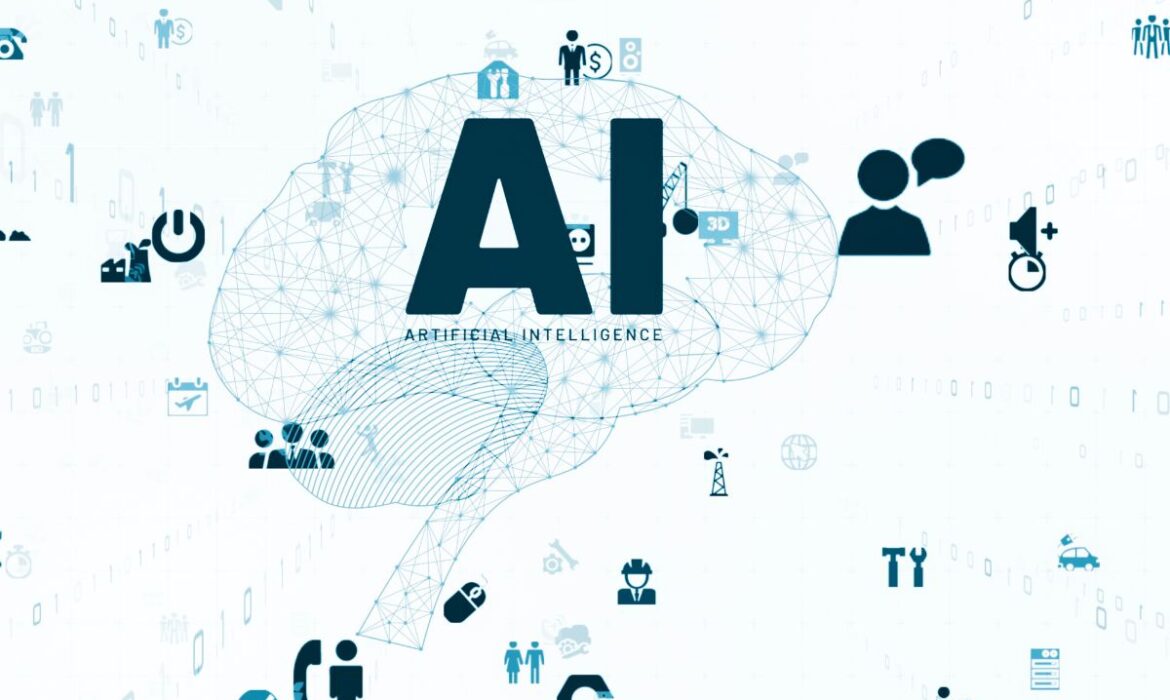
In a world where speed and personalization rule, basic chatbots just don’t cut it anymore. If you want real conversions and loyal customers, it’s time to think bigger. Let’s break down why AI agents are taking over digital marketing, and how they’re helping smart businesses boost engagement, streamline workflows, and drive serious results.
Key Takeaways
- AI agents are leaving chatbots in the dust when it comes to smarter conversations and better conversions.
- AI agents use real-time data to make every interaction feel tailor-made.
- Over half of businesses are already jumping on the AI agent train, and it’s easy to see why.
- Running multiple AI agents lets you automate more, work faster, and keep customers happy at every step.
- You don’t need to be a tech wizard to build one, with the right tools, AI agents are easier to launch than ever.
The Evolution: From Chatbots to AI Agents
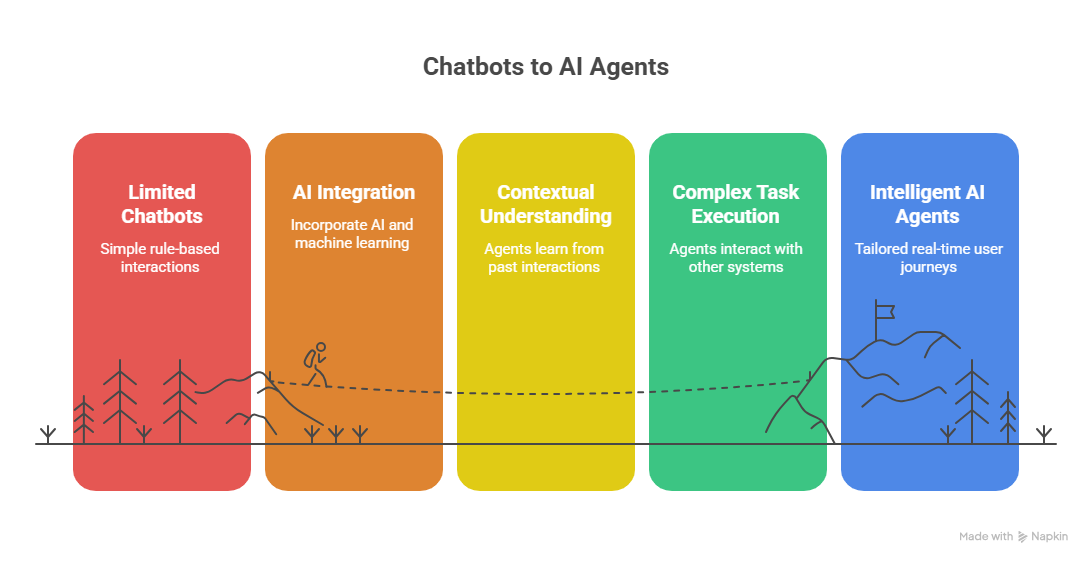
Chatbots were the cool kids on the block for a while. You clicked on a website, saw that little chat bubble pop up, and you thought, “Wow, instant help!”
But then it became clear that these bots weren’t all that smart.
Ask one slightly off-topic question, and suddenly you’re in a never-ending loop of canned responses.
That’s because traditional chatbots are built on pre-defined rules and decision trees. They can handle simple tasks like answering FAQs or booking appointments, but that’s about it.
Now let’s talk about the new generation: AI agents.
These aren’t your typical bots. AI agents are powered by artificial intelligence, large language models, machine learning, and natural language processing.
They don’t just follow scripts, they understand context, learn from past interactions, perform complex tasks, and interact with other systems and tools.
Think of chatbots as traffic cops directing you down one of three roads.
Now picture AI agents as highly trained tour guides who tailor your journey in real-time, based on your preferences, history, and goals.
What Is an AI Agent?

An AI agent is a computer program designed to understand natural language, analyze customer input, and take action based on that understanding.
It’s like giving your business a digital brain that can think, learn, and interact intelligently with your customers and systems.
Using tools like large language models, AI agents can automate workflows, generate personalized outputs, and perform tasks that would normally require human intervention.
They don’t just respond, they solve real-world problems and work across external tools, platforms, and databases.
At Zulu Shack Creative, we believe AI agents are the most powerful AI solutions available to marketers today.
They’re designed to be proactive, responsive, and completely aligned with business goals. And the best part? They keep learning and getting smarter.
AI Agent vs Chatbot vs Conversational AI: Clearing Up the Confusion
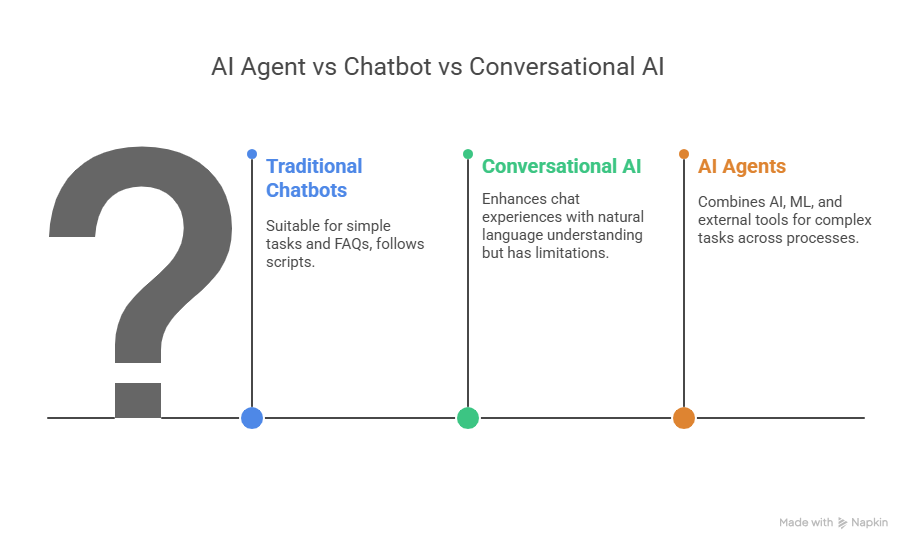
Let’s break it down because these terms get mixed up a lot:
- Traditional Chatbots follow scripts and handle simple tasks like FAQs.
- Conversational AI adds natural language understanding for better chat experiences but still has limitations.
- AI Agents combine conversational AI, machine learning, decision making, and access to external tools to perform complex tasks across business processes.
So when we say “AI agent,” we mean something that goes beyond chat. We’re talking about digital workers with real problem-solving power.
AI Agent vs Chatbot: Who’s Winning the Conversion Game?
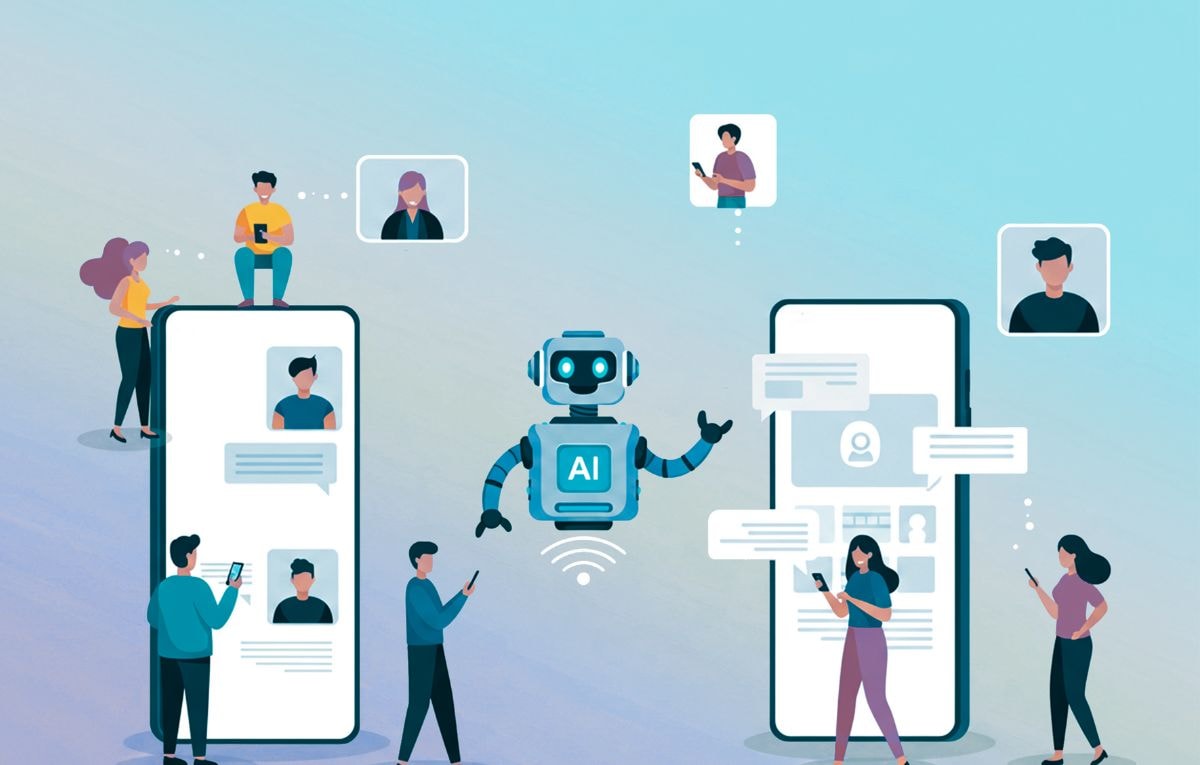
Let’s put these two side by side and see who’s really delivering on the promise of better customer experiences and more conversions.
1. Understanding What Customers Really Mean
Chatbots can only do what they’re programmed to do. If your customer types something unexpected, they might get stuck or receive a confusing response.
AI agents use natural language understanding and contextual awareness to interpret what your customer actually means, even when it’s not perfectly phrased.
They read between the lines and respond in a way that feels human and helpful.
Winner: AI agents
2. Performing Complex Tasks
Chatbots are great for quick answers, but ask them to pull your invoice history or reschedule an appointment across two platforms, and they’re lost.
AI agents can perform complex tasks like updating customer data, integrating with CRMs, triggering email workflows, or generating proposals, all within a single conversation.
Winner: AI agents
3. Personalizing the Experience
Customers want to feel like they’re talking to someone who knows them. Chatbots don’t have memory. AI agents do.
AI agents pull in historical data, customer preferences, and even insights from previous chats to personalize every interaction.
That means customers get answers faster, and they feel seen.
Winner: AI agents
4. Speeding Up Conversions
Chatbots often act as middlemen, passing off leads to real people to follow up.
AI agents close the loop.
They qualify leads, answer detailed product questions, schedule demos, and even process transactions.
That means fewer drop-offs and more conversions.
Winner: AI agents
Why Chatbots Just Can’t Keep Up
Look, chatbots still have a role to play. They’re cheaper, easy to implement, and useful for really basic tasks.
But when customer expectations are high and the competition is fierce, you need something more. You need an AI agent that can:
- Understand customer language
- Personalize the conversation
- Complete tasks across platforms
- Improve with every interaction
In short, you need intelligence, not just automation.
Let’s Talk Numbers
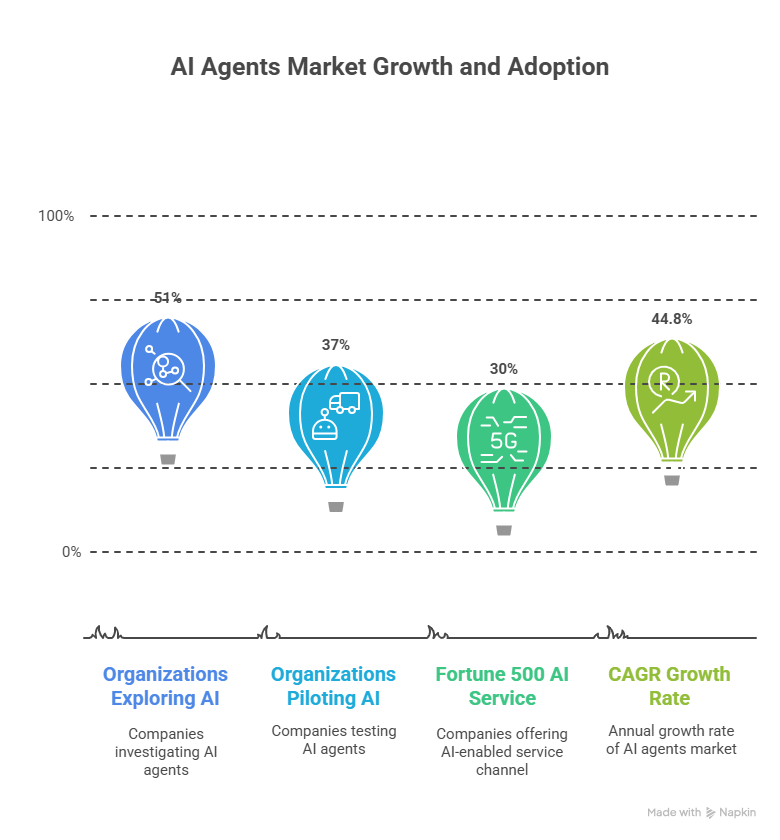
Still wondering if AI agents are worth the investment? Take a look at the trends:
- The AI agents market is set to explode from $5.1 billion in 2024 to $47.1 billion by 2030, growing at a whopping 44.8% CAGR. That’s not just growth, it’s a full-on rocket launch. [Source]
- A KPMG study reveals that 51% of organizations are already exploring AI agents and 37% are piloting them. [Source]
- According to Gartner, 30% of Fortune 500 companies will offer service through a single, AI-enabled channel by 2028. [Source]
This tells us one thing loud and clear: the future belongs to businesses that embrace smart automation and AI-driven experiences.
Why AI Agents Work So Well in Digital Marketing
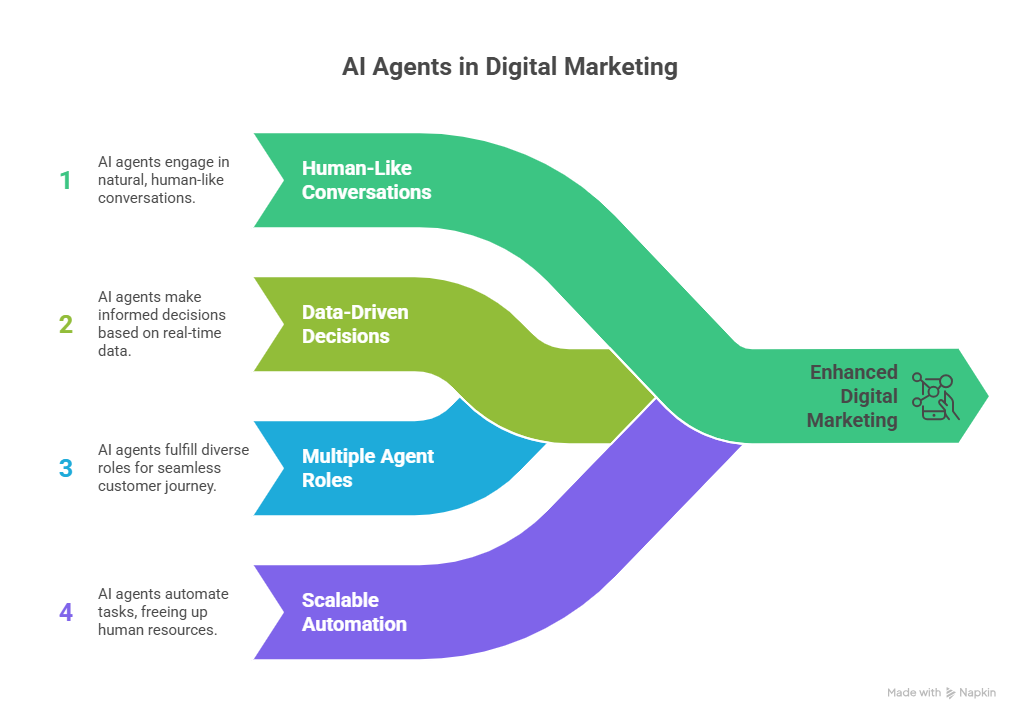
Digital marketing is all about connecting with the right people at the right time in the right way. AI agents are tailor-made for that.
1. Conversations That Feel Human
AI agents use natural language processing and deep learning to understand tone, intent, and context. That means they can handle tricky questions, steer the conversation toward a conversion goal, and adapt their language to suit different personalities.
2. Data-Driven Decision Making
AI agents analyze customer data in real time to identify patterns, segment audiences, and recommend the best next steps. They don’t guess—they know.
3. Multiple Agents, Multiple Roles
Why limit yourself to one agent when you can have several?
With multiple AI agents, you can assign different roles—one for lead gen, another for onboarding, and a third for customer retention. Each one is trained for its specific function and works alongside others to create a seamless customer journey.
4. Scalable Automation
AI agents automate routine tasks, handle repetitive questions, and manage time-consuming processes without breaking a sweat. This frees up your human team to focus on creative, strategic work while the agents keep everything running smoothly.
How to Create an AI Agent (It’s Easier Than You Think)
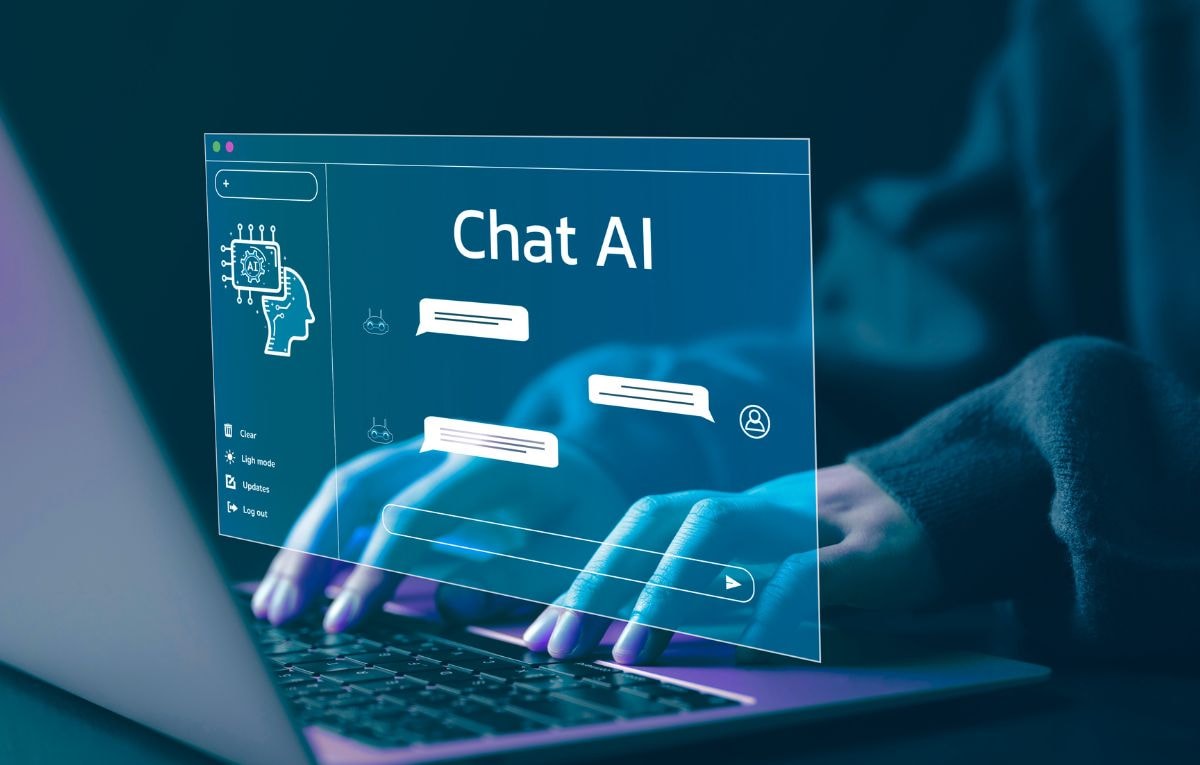
Building an AI agent sounds like a big job, but we make it simple at Zulu Shack Creative. Here’s how it works:
Step 1: Choose a Use Case
Start by identifying a problem you want to solve. It could be lead qualification, customer support, internal workflow automation, anything that slows your team down.
Step 2: Train with Real Data
Feed your AI agent real-life examples, historical data, user questions, and brand tone. This helps it learn how to respond like a true team member, not just a robot.
Step 3: Connect to External Systems
Your AI agent becomes a powerhouse when you integrate it with CRMs, email platforms, and databases. This allows it to access the information it needs to complete tasks without human intervention.
Step 4: Launch and Optimize
Once live, your AI agent starts learning from every conversation. You can tweak responses, improve performance, and scale based on real results.
And don’t worry, our team is with you every step of the way.
The Final Verdict
Let’s put it all together.
| Feature | Chatbot | AI Agent |
|---|---|---|
| Understands Natural Language | Sometimes | Yes |
| Learns from Past Interactions | No | Yes |
| Performs Complex Tasks | No | Yes |
| Integrates with External Systems | No | Yes |
| Personalizes Responses | Limited | Yes |
| Automates Workflows | Only Basic | Yes |
| Improves Over Time | No | Yes |
| Drives Conversions | Not Consistently | Absolutely |
AI agents win in every category that matters for modern businesses.
At Zulu Shack Creative, we build AI agents that are trained to solve real problems, boost performance, and work hand-in-hand with your team.
Ready to Build Smarter Conversations That Convert?
Let’s make your brand unforgettable. Whether you’re just getting started with AI agents or ready to scale, Zulu Shack Creative is here to help you create, launch, and optimize AI-powered solutions that actually work.
Contact us today and let’s build something brilliant together.
Frequently Asked Questions
How can AI agents help automate workflows across different departments?
AI agents can connect with various business processes, like sales, customer service, and operations, to automate routine tasks, reduce manual input, and improve overall efficiency.
Are AI agents suitable for small businesses or just enterprise-level companies?
Absolutely. AI agents can be scaled to fit any size business and are especially helpful for small teams looking to streamline complex workflows and improve customer experience with limited resources.
Can multiple AI agents work together in the same system?
Yes. Using multiple AI agents, each focused on specific functions and to perform tasks like lead scoring, onboarding, or support, can enhance performance across the customer journey without overlapping tasks.
How does natural language processing improve customer interactions?
Natural language processing enables AI systems to interpret human language, understand customer input, and respond in a way that feels natural, making interactions smoother and more satisfying.
What role does machine learning play in improving agent performance over time?
Machine learning allows AI agents to identify patterns from historical data, adapt to user inputs, and continuously optimize how they perform complex tasks and respond to real-world problems.
Can AI agents interact with external tools like CRMs or customer management systems?
Yes. Integrating with external systems allows AI agents to access customer data, update records, and take action based on user requests in real time.
My name is Ryan, and I help businesses, small and large, make a lasting impact online.
I am passionate about delivering results and helping my clients succeed. With my expertise in SEO, branding, and marketing, I lead the agency’s efforts to create and implement effective strategies that drive business growth. Our all-inclusive approach sets us apart from other digital media companies and ensures that our clients receive the full range of services they need for online success. If you can think of it, we can build it!
Zulu Shack Creative team members thrive on momentum. Like Zulu warriors, we strive to spearhead your idea with speed and quality.
When I’m not helping my team implement new digital marketing strategies, I enjoy playing music, hosting poker nights, reading Stephen King novels, and spending time with my wife and baby daughter.

